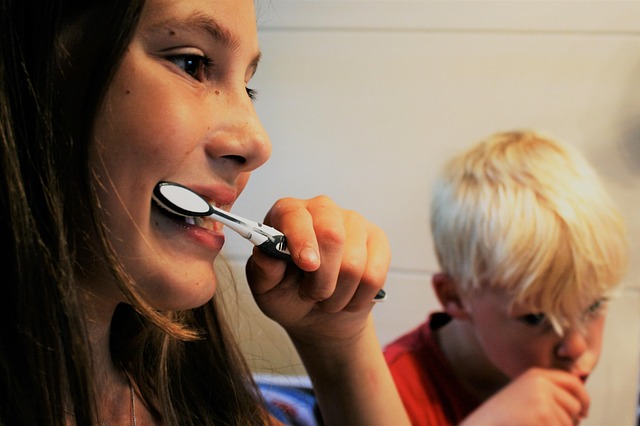Comprehensive Guide to Teeth Care – Achieve a Healthier, Brighter Smile
Stained or dull teeth can affect more than just your smile. With modern cleaning and whitening treatments, it’s easier than ever to restore a bright, healthy look—often in just one visit. Find out how safe, fast, and surprisingly affordable the options are today

What Does Effective Daily Teeth Care Involve?
Effective daily teeth care forms the foundation of optimal oral health. Brush your teeth at least twice daily using fluoride toothpaste and a soft-bristled toothbrush. The American Dental Association recommends brushing for two minutes, ensuring you clean all surfaces of your teeth. Flossing once daily removes plaque and food particles from between teeth where your toothbrush can’t reach. Consider incorporating an antimicrobial or fluoride mouthwash into your routine to reduce bacteria and strengthen tooth enamel. Replace your toothbrush every three to four months or sooner if bristles become frayed. These simple yet crucial practices prevent cavities, gum disease, and tooth decay while maintaining fresh breath.
How Do Professional Teeth Cleaning Treatments Work?
Professional teeth cleaning is a vital component of preventive dental care that goes beyond what home care can accomplish. During a professional cleaning, dental hygienists use specialized tools to remove plaque and tartar (calcified plaque) from your teeth surfaces, between teeth, and along the gumline. The process typically includes scaling to remove tartar, polishing to eliminate surface stains, and flossing to clean between teeth. Many dentists also offer fluoride treatments to strengthen enamel and protect against decay. These professional cleanings, recommended every six months, not only keep your teeth looking brighter but also allow dental professionals to detect early signs of problems like cavities, gum disease, or oral cancer before they become serious.
What Are The Most Effective Teeth Whitening Options Available?
Teeth whitening has become increasingly popular as people seek brighter smiles. Professional in-office whitening provides the most dramatic results, often lightening teeth by several shades in just one 60-90 minute session. Dentists use high-concentration peroxide gels activated by specialized lights or lasers for maximum effectiveness. Custom-fitted take-home trays prescribed by dentists offer professional-grade results over a 1-2 week period and allow for periodic touch-ups. Over-the-counter options include whitening strips, trays, and toothpastes, which contain lower concentrations of whitening agents and produce more modest results over longer periods. For those with sensitive teeth, many professional dental care providers offer options specifically designed to minimize discomfort while still delivering noticeable whitening effects.
When Should You Seek Urgent Dental Care?
Knowing when to seek urgent dental care can prevent minor issues from escalating into serious problems. Severe, persistent toothache that doesn’t respond to over-the-counter pain relievers warrants immediate attention. Knocked-out teeth require emergency care within 30 minutes for the best chance of saving the tooth. Loose adult teeth, broken or cracked teeth (especially with pain), and severe swelling of the face, gums, or mouth are all urgent situations. Infections accompanied by fever, facial swelling, or difficulty swallowing or breathing require immediate medical attention as they can become life-threatening. Many communities now have dedicated urgent dental care facilities with extended hours to address these emergencies when your regular dentist isn’t available.
What Are The Latest Innovations In Dental Care Technology?
The dental care landscape in the United States has been revolutionized by technological advancements that make treatments more effective, comfortable, and accessible. Digital dentistry employing 3D imaging and CAD/CAM technology enables same-day crowns, bridges, and veneers—eliminating the need for multiple appointments and temporary restorations. Laser dentistry provides more precise and comfortable treatment for gum disease, cavity preparation, and certain cosmetic procedures with reduced bleeding and faster healing times. AI-powered diagnostic tools help dentists detect issues earlier and with greater accuracy, while teledentistry services allow for remote consultations and follow-ups, particularly beneficial for those in rural areas with limited access to dental care. Smart toothbrushes with Bluetooth connectivity and real-time feedback are helping patients improve their daily oral hygiene practices by tracking brushing habits and technique.
How Do Teeth Whitening Costs Compare Across Different Providers?
The cost of teeth whitening varies significantly depending on the method and provider you choose. Professional treatments generally deliver superior results but come at a higher price point than over-the-counter alternatives.
| Whitening Method | Provider Type | Average Cost Range |
|---|---|---|
| In-Office Professional Whitening | Dental Offices | $400-$1,500 per treatment |
| Take-Home Custom Trays | Dental Offices | $250-$600 |
| Over-the-Counter Whitening Strips | Retailers (Crest, Colgate) | $25-$100 |
| Whitening Toothpastes | Retailers (Various brands) | $4-$15 |
| LED Whitening Kits | Online Retailers | $50-$200 |
| Dental Schools/Clinics | Educational Institutions | $100-$350 for professional treatments |
Prices, rates, or cost estimates mentioned in this article are based on the latest available information but may change over time. Independent research is advised before making financial decisions.
Maintaining optimal dental health requires a multi-faceted approach combining consistent daily habits, regular professional care, and appropriate interventions when problems arise. By understanding the fundamentals of teeth care, exploring available whitening options, and knowing when to seek professional assistance, you can enjoy a healthier, brighter smile for years to come. Remember that while aesthetic treatments like whitening can enhance your smile’s appearance, the foundation of a truly healthy smile lies in proper hygiene practices and preventive care.
This article is for informational purposes only and should not be considered medical advice. Please consult a qualified healthcare professional for personalized guidance and treatment.




